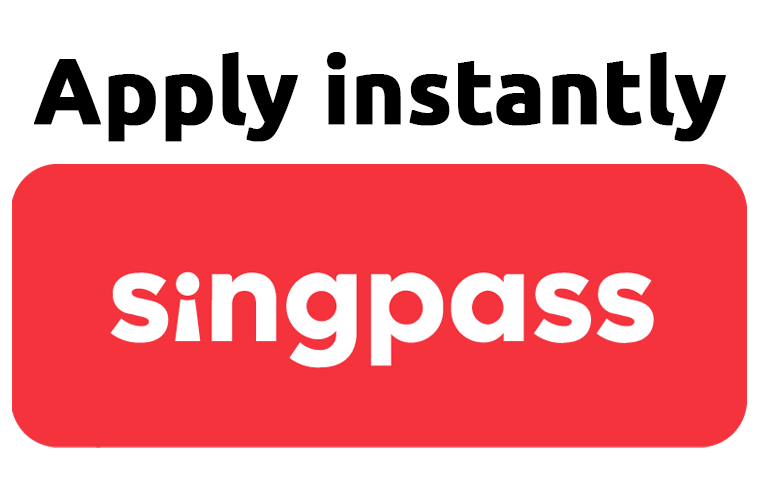Key takeaways:
- Without a fixed income and regular CPF contributions, self-employed individuals may find it harder to qualify for a personal loan under traditional lending criteria.
- That said, you can improve your chances by providing supporting income documents such as bank statements, IRAS tax filings, and invoices as proof of earnings.
- Consistently making on-time repayments on your credit cards and other credit facilities can also help strengthen your credit score and demonstrate that you’re a low-risk borrower.
As a self-employed individual, running your own show is incredibly rewarding, but this comes with its own challenges. Some challenges include securing extra funding for your needs and determining whether it is possible to apply for a personal loan without providing income proof in Singapore. Personal loans for the self-employed have more hoops to jump through, requiring you to document and organise your income proof in order for your application to be processed smoothly.
So long as you’re doing this and paying your income tax every year, you can rest easy whenever you apply for a loan for self-employed people. We’ll guide you through the application process for this unsecured personal loan, and how you can get the best personal loans for the self-employed!
Why self-employed borrowers are considered high-risk
Self-employed borrowers are considered high-risk because their income can be irregular. For example, freelancers won’t have a fixed number of assignments every month. However, you can mitigate this by applying for a secured personal loan or ensuring you pay your income taxes annually, as mentioned above.
Then, there’s the issue of self-employed borrowers who do not maintain a consistent record of their income proof. Your income itself might be consistent and sufficient for a loan for self-employed people, but if you can’t prove it to the lender, it’s the equivalent of having gaps in your earnings.
Documents needed for personal loans for the self-employed in Singapore
Despite banks and licensed money lenders being stricter with self-employed borrowers, the list of documents you need to submit along with your application for a private loan in Singapore is straightforward:
- Your latest Income Tax Notice of Assessment (NOA)
- Your most recent bank statements
- Commission slips, if any
- CPF contributions, if any
How to improve your eligibility for personal loans as a self-employed individual
If you’re concerned about your eligibility for a personal loan, don’t worry. Here are three simple things you can do to improve it:
- Your income proof is crucial when you’re applying for a loan. Document and organise all your income statements. These comprise invoices, client agreements, payment receipts, and other official documents.
- Repay existing debt, such as credit card bills and outstanding loan instalments, promptly. This puts your credit score in better standing.
- Consider a guarantor for your personal loan for the self-employed. This strengthens your application as it reassures the lender that your loan will be repaid.
Which lenders offer personal loans for the self-employed in Singapore?
Three types of lenders offer personal loans for the self-employed in Singapore, but keep in mind how many personal loans you can have at once. This is aggregated across all the loans you take out.
Traditional Banks
All traditional banks in Singapore offer personal loans for the self-employed. If you can provide your latest Income Tax Notice of Assessment, showing that you’re comfortably earning at least S$30,000 a year, plus furnish proof of your CPF contributions, your application should be approved. What’s more, your application will be strengthened if your credit score is good.
Licensed Money Lenders
The Ministry of Law regulates these firms. They have less stringent requirements if you’re taking up a loan for self-employed people from them. Your proof of income serves as sufficient evidence for your loan application. However, the loan limit for licensed money lenders differs from that of banks. It ranges from S$500 to six times your monthly income, depending on your annual earnings and citizenship status.
Digital Banks
These fintech platforms have almost identical requirements to traditional banks because they operate under similar frameworks. Digital banks do offer personal loans for the self-employed, but you’ll need to submit the same supporting documents as those required by traditional banks. These include your latest Income Tax Notice of Assessment and additional proof of income.
Where to get personal loans for the self-employed in Singapore
| Lender | Traditional Banks | Licensed Money Lenders | Digital Banks |
| Loan Application Process | Electronically via the bank’s mobile app or website, or in-person at any of their branches | Electronically or at the lender’s office, but the loan contract has to be signed in-person | Electronically via the bank’s mobile app or web platform |
| Loan Limit | 4 to 10 times your monthly income | S$500 to six times your monthly income | The same as traditional banks, as they operate within identical frameworks |
| Income Requirement | S$30,000 and above | Any amount, as long as your earnings are stable | Identical to traditional banks |
| Credit Score Requirement | BB and above, ideally | None | Equivalent to traditional banks because they adhere to identical frameworks |
| Processing Time | One week or less | As fast as 1-2 hours | In between conventional banks and licensed money lenders |
Can you get personal loans for the self-employed with no proof of income?
If you aren’t able to provide proof of income, including CPF contribution statements and commission slips, it’ll be extremely difficult to get a loan. That’s because the lender can’t ascertain how reliable you are as a borrower. On the bright side, there are two ways you can still obtain a loan for self-employed people:
- You can secure a personal loan for the self-employed with no proof of income by putting down collateral. This can be property, a vehicle, or valuables like gold jewellery. It lets the lender know they can claim the collateral as payment if you can’t repay your loan, showcasing your reliability as a borrower.
- Banks will not approve applications without proof of income. However, licensed money lenders may allow you to borrow smaller amounts if you show your bank account is receiving a consistent inflow of funds month after month. Informal agreements or receipts can support getting a low-income personal loan.
With that said, don’t be tempted to take up personal loans for the self-employed with no proof of income from unlicensed money lenders. Not only is it illegal in Singapore, but the repayment terms will be highly unfair to you.
How do I compare loan offers?
There are three things to compare when you’re considering a loan for self-employed people:
Interest Rate – Essentially, the additional amount you need to pay per year on top of the principal amount you’re borrowing. The best personal loans for the self-employed will usually provide lower interest rates.
Loan Tenure – This refers to how much time you have to repay the loan, along with the number of instalments needed. The more flexible this is, the better.
Other Fees – These include any processing fees or administrative charges. The best personal loans for the self-employed will not impose additional layers of fees. However, do note that fees and additional interest for late repayments are legal and industry-standard.
In closing
Loans for self-employed people aren’t as difficult to apply for as you might’ve feared. As long as you can provide official proof for your monthly income, you’re halfway there. The more you earn, the higher your chances of getting approved. And your application is in even better standing if your credit score is good.
Personal loans without income proof also exist, but you’ll need to put more thought into your application. You might also want to utilise collateral or seek out a guarantor.
Ready to get started? Search and compare the best loans on Personal Loan Finder and apply right away! You can reach out to us directly if you have any queries regarding personal loans, too.





